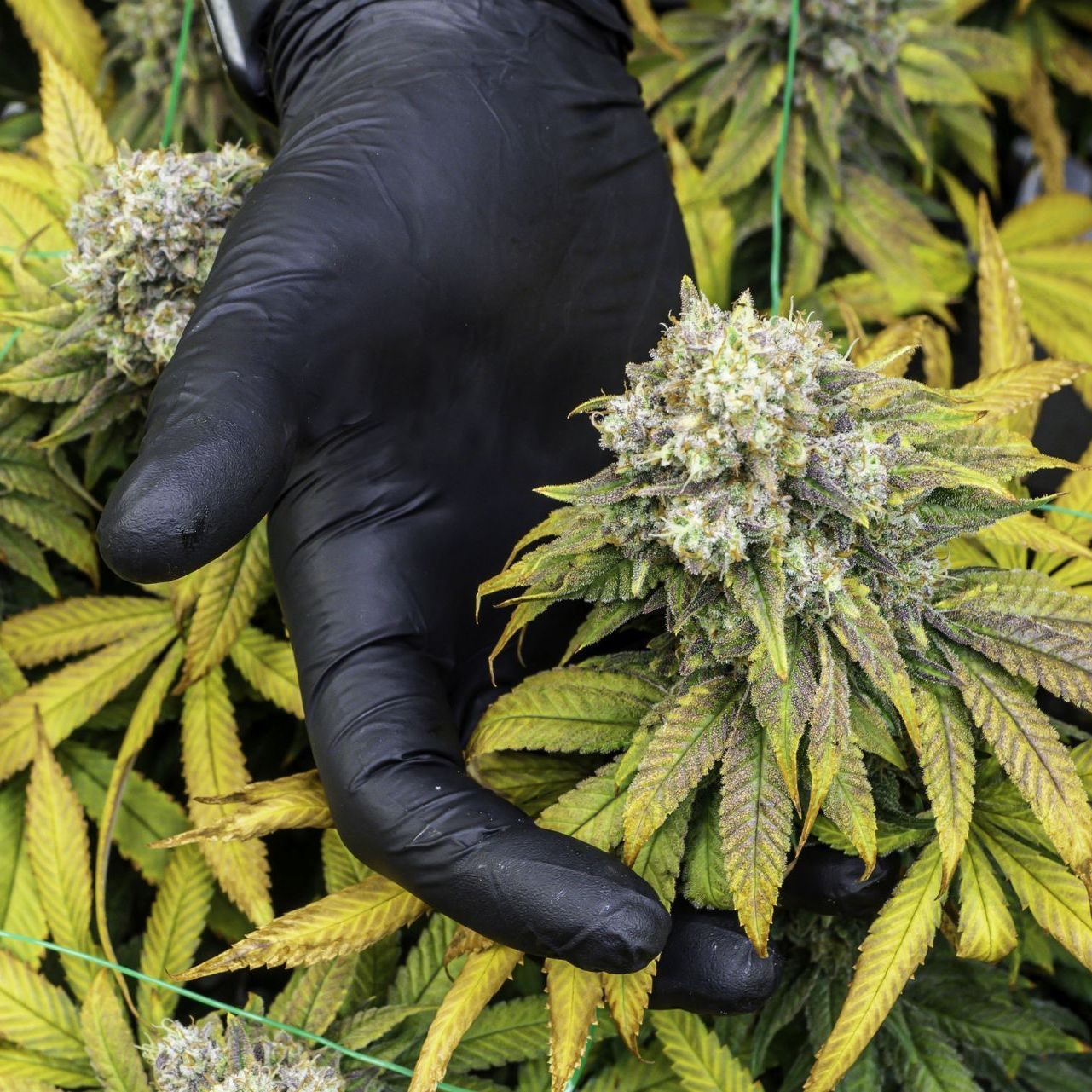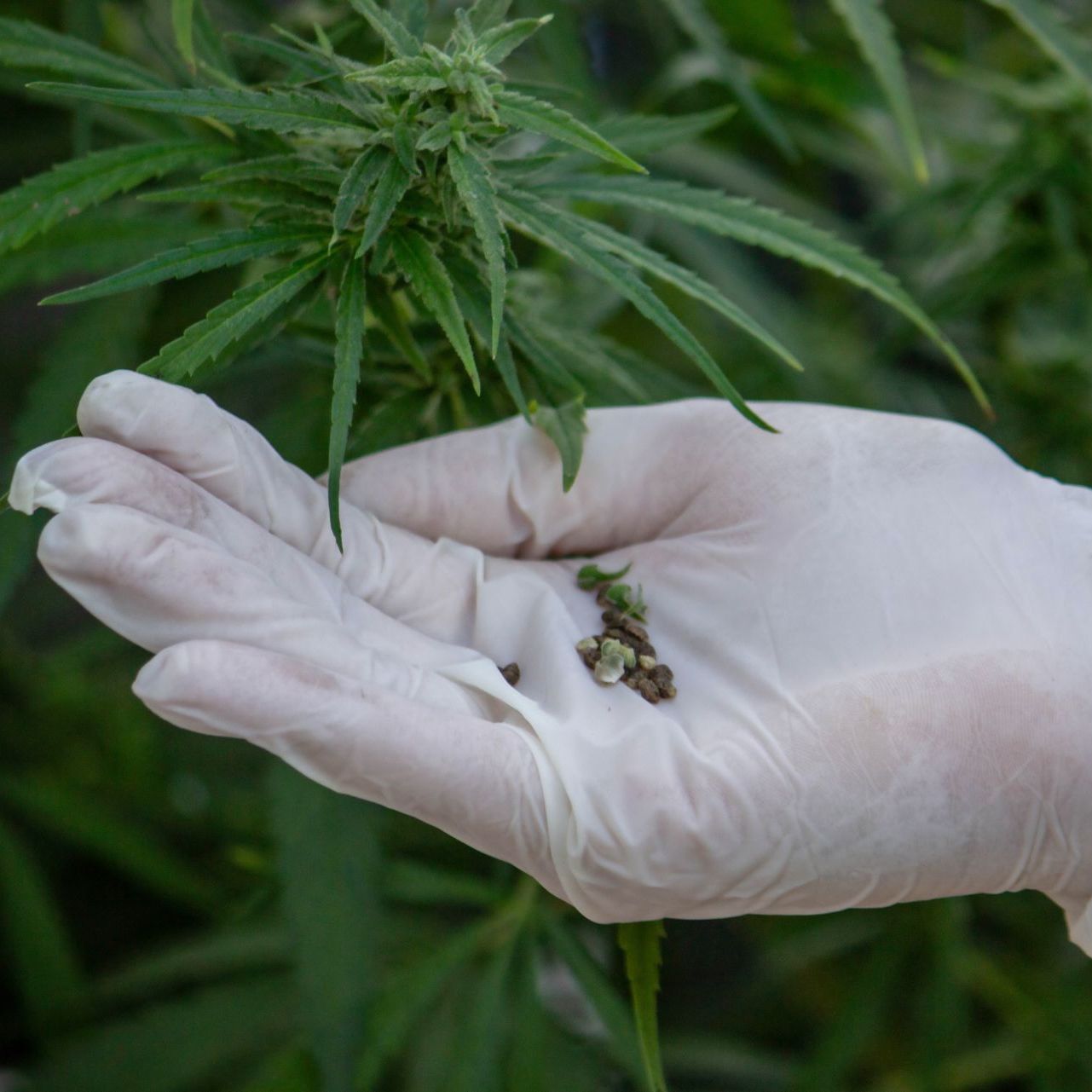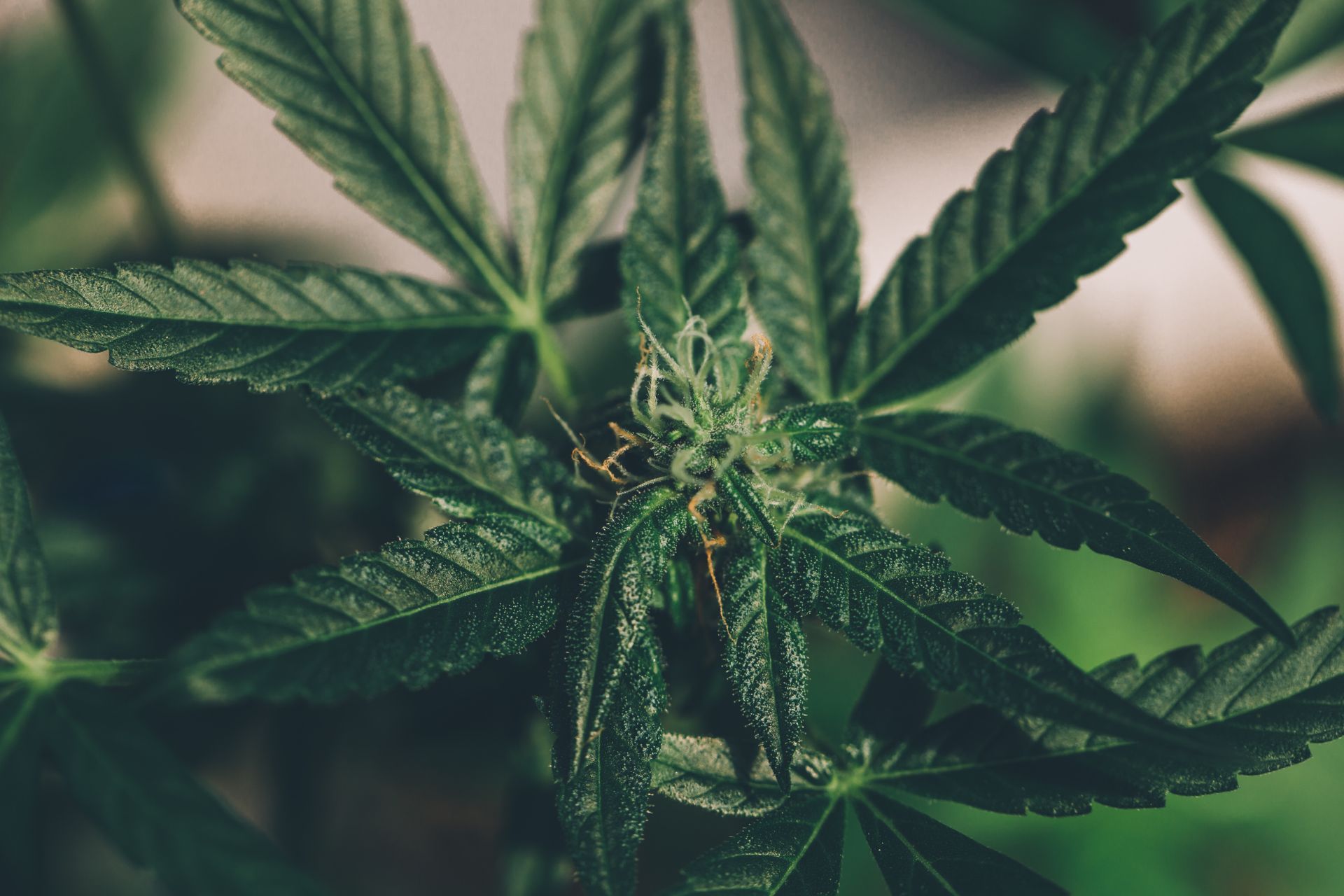Running a medical cannabis dispensary in South Dakota comes with unique challenges, especially when it comes to insurance coverage and managing costs. The state's medical cannabis industry is projected to hit $66 million in sales this year, supported by around 14,000 registered patients. This growth brings increased scrutiny and regulatory hurdles that dispensary owners must navigate carefully. Understanding the insurance landscape is crucial for protecting your business from risks while staying compliant with state laws.
Before diving into coverage options and cost factors, it’s important to recognize the broader context shaping South Dakota’s cannabis market. Recent developments such as the loss of licenses for several dispensaries following the state’s rejection of recreational marijuana have created uncertainty. Additionally, rising registration fees and regulatory crackdowns on hemp-derived THC products add layers of complexity for operators. This guide breaks down what dispensary owners need to know about insurance coverage, potential costs, and risk management strategies to stay ahead in South Dakota’s evolving cannabis industry.
Understanding Insurance Needs for South Dakota Dispensaries
Insurance is not just a safety net; it’s a business essential. Medical cannabis dispensaries face a variety of risks ranging from property damage and theft to product liability and regulatory compliance issues. Given the state’s strict regulatory environment, having the right insurance coverage can mean the difference between surviving a crisis and shutting down.
General liability insurance is the foundation for most dispensaries. It protects against third-party claims of bodily injury or property damage. For example, if a customer slips and falls inside your dispensary, this coverage helps cover medical expenses and legal fees. However, cannabis businesses often need specialized policies that address the unique risks of the industry.
Product liability insurance is particularly important. Cannabis products can cause unexpected reactions or health issues, and dispensaries can be held liable for damages. This coverage helps protect against claims related to product safety, contamination, or mislabeling. Given South Dakota’s ongoing regulatory shifts, including the crackdown on intoxicating hemp-derived THC products supported by licensed marijuana businesses, product liability coverage is becoming even more critical (Cannabis Risk Manager).
Additional Insurance Considerations
Property insurance protects your dispensary’s physical assets, including inventory, equipment, and the building itself. Since cannabis products are high-value and often targeted by theft, this coverage is essential. South Dakota dispensaries should also consider business interruption insurance to cover lost income if operations are halted due to unforeseen events. This type of insurance can be particularly beneficial in situations such as natural disasters, which, while not frequent, can have devastating effects on local businesses.
Workers’ compensation insurance is mandatory if you have employees. It covers medical costs and lost wages for workers injured on the job. Given the labor-intensive nature of dispensary operations, this coverage helps protect both staff and business owners. Additionally, dispensaries should be aware of the importance of training programs focused on safety and compliance. Implementing these programs not only enhances workplace safety but can also potentially lower insurance premiums by demonstrating a commitment to risk management.
Cyber liability insurance is gaining importance as dispensaries rely more on digital systems for inventory, sales, and patient records. This coverage helps mitigate risks from data breaches or cyberattacks, which can be costly and damage your reputation. As the cannabis industry continues to evolve, the integration of technology in operations will likely increase, making it imperative for dispensaries to stay ahead of potential cyber threats. Moreover, maintaining robust cybersecurity measures, such as regular software updates and employee training on data protection, can further safeguard against these risks.

Article By: Deb Sculli
Cannabis Insurance Specialist
TruePath Insurance is fully licensed and authorized to provide comprehensive insurance solutions across multiple states.
We proudly serve individuals and businesses nationwide, offering access to trusted regional and national carriers. Our goal is to help clients find reliable, affordable coverage that aligns with their goals—whether for personal protection, business stability, or long-term financial security.
Cost Factors Affecting Dispensary Insurance in South Dakota
Insurance premiums for cannabis dispensaries in South Dakota can vary widely based on several factors. The size of your operation, location, annual sales volume, and the types of coverage you select all influence costs. However, the state’s regulatory environment also plays a significant role.
One major concern for dispensary owners is the recent 70% increase in annual state registration fees for medical marijuana businesses. Deb Peters, president of the Cannabis Industry Association of South Dakota, described this hike as “not a business-friendly approach” for a state that otherwise promotes business growth (South Dakota Searchlight). This fee increase adds to the overall cost burden and can indirectly affect insurance premiums, as insurers factor regulatory costs into risk assessments.
Another cost driver is the risk profile of your dispensary. Businesses with a history of claims or located in areas with higher crime rates may face higher premiums. Similarly, dispensaries that carry large inventories or offer a wide range of products might require more comprehensive coverage, increasing costs.
South Dakota’s medical cannabis industry is still recovering from the December 2024 loss of licenses for at least eight dispensaries after the state rejected recreational marijuana legalization. This regulatory uncertainty can lead insurers to price policies more conservatively, anticipating potential business disruptions (THC Marijuana News).
Insurance Cost vs. Healthcare Expenses
South Dakota families face high healthcare costs, with average annual health insurance coverage around $25,572-comparable to the price of an economy car (The Dakota Scout). This financial pressure makes medical cannabis an attractive alternative for many patients seeking relief. However, dispensaries must balance affordability with adequate insurance coverage to protect their operations.
Health care expenses are a growing concern for South Dakotans. A February 2024 poll by KFF found that about 75% of adults worry about affording unexpected medical bills or health care for themselves or their families (South Dakota News Watch). For dispensaries, this means patient demand may increase, but so will the need for robust insurance to manage the risks associated with higher sales volumes and product liability.
Moreover, as the medical cannabis market continues to evolve, dispensaries must also consider the impact of emerging trends on their insurance needs. For instance, the growing acceptance of cannabis for various medical conditions may lead to an influx of new patients, which could significantly increase foot traffic and sales. While this presents an opportunity for growth, it also heightens the risk of inventory loss, theft, or even accidents on the premises. Consequently, dispensaries may find themselves needing to reassess their coverage options regularly to ensure they are adequately protected against these evolving risks.
Additionally, the landscape of cannabis insurance is becoming increasingly complex due to the interplay of state and federal regulations. As more states legalize cannabis, the insurance market is adapting, but South Dakota's unique regulatory framework may still leave dispensary owners navigating a patchwork of coverage options. This complexity can lead to confusion about what policies are necessary and how to best protect their investments. Dispensaries must stay informed about changes in legislation and insurance offerings to make educated decisions that safeguard their businesses while remaining compliant with state laws.

Key Insurance Policies for Dispensaries in South Dakota
Choosing the right mix of insurance policies helps dispensaries manage risk while complying with state laws. Here are the most important policies to consider:
| Policy Type | What It Covers | Why It Matters |
|---|---|---|
| General Liability | Third-party bodily injury, property damage, legal defense | Protects against common claims like slip-and-fall accidents |
| Product Liability | Claims related to product defects, contamination, adverse reactions | Essential for cannabis products with strict safety standards |
| Property Insurance Insurance | Damage or loss of inventory, equipment, building | Protects valuable cannabis stock and dispensary assets |
| Business Interruption | Lost income during forced closures or disasters | Helps maintain cash flow when operations are disrupted |
| Workers’ Compensation | Employee injury medical costs and lost wages | Mandatory for businesses with employees |
| Cyber Liability | Data breaches, cyberattacks, privacy violations | Protects sensitive patient and business information |
Licensing and Compliance Insurance
Given South Dakota’s regulatory environment, dispensaries should also consider insurance products that cover licensing risks. The loss of licenses for several dispensaries in late 2024 highlights the fragility of operating without strong legal and compliance safeguards (THC Marijuana News).
Some insurers offer policies that cover legal fees and fines related to regulatory investigations or compliance failures. While these policies can be costly, they provide peace of mind in a market where laws and enforcement can change rapidly. Additionally, dispensaries may want to invest in training programs for their staff to ensure everyone is aware of the latest regulations and compliance requirements. This proactive approach not only minimizes the risk of violations but also enhances the overall operational integrity of the dispensary.
Moreover, as the cannabis industry continues to evolve, staying informed about potential changes in legislation is crucial. Engaging with industry associations and legal experts can provide dispensaries with valuable insights into emerging trends and best practices. This knowledge can be instrumental in adapting business strategies and ensuring that insurance coverage remains adequate and relevant to the evolving landscape of cannabis regulation in South Dakota.
Managing Risk and Navigating Regulatory Challenges
South Dakota’s cannabis industry faces ongoing challenges. The state’s crackdown on intoxicating hemp-derived THC products, supported by licensed marijuana businesses, aims to protect the medical cannabis program but also adds enforcement risks (https://cannabisriskmanager.com/south-dakota-cannabis-industry-backs-crackdown-on-hemp-thc/?utm_source=openai).
Dispensary owners must stay informed about evolving laws and maintain strong compliance programs. Insurance alone cannot cover all risks, especially those related to regulatory non-compliance. Investing in staff training, security systems, and legal counsel helps reduce exposure to fines and license suspensions. Additionally, establishing a robust internal audit process can further enhance compliance and operational efficiency, allowing dispensaries to identify potential issues before they escalate into significant problems.
Health care costs in South Dakota remain a pressing concern. Tim Rave, CEO of the South Dakota Association of Healthcare Organizations, emphasized that “health care is expensive, insurance is expensive and every citizen in this state who pays for those things knows that” (South Dakota News Watch). For dispensaries, this means balancing the need to keep prices accessible for patients while managing operational costs, including insurance premiums. The challenge is further compounded by the necessity of maintaining high-quality products and services, which often require significant investment in both human resources and technology. As the market evolves, dispensaries may also need to explore partnerships with local health organizations to enhance patient education and outreach, fostering a more informed consumer base.
Future Outlook for Recreational Marijuana and Insurance
While recreational marijuana was rejected in South Dakota in 2024, legislative research projects that if legalized, gross marijuana sales could reach $49.3 million in the first year and nearly triple to $145.6 million within three years (South Dakota Cannabis Information Portal). Such growth would likely increase insurance demand and complexity. The anticipated expansion of the market could also lead to a diversification of products and services offered by dispensaries, necessitating a more tailored approach to risk management and insurance coverage.
Dispensaries preparing for possible recreational legalization should consider scalable insurance solutions that can adapt to changing sales volumes and regulatory requirements. Early engagement with knowledgeable insurance brokers can help businesses avoid coverage gaps and manage premiums effectively. Moreover, as the industry matures, there may be opportunities for collective purchasing strategies among dispensaries, allowing them to leverage their combined buying power to negotiate better rates and terms with insurers. This collaborative approach not only enhances financial sustainability but also fosters a sense of community within the burgeoning cannabis sector.

Frequently Asked Questions About Dispensary Insurance in South Dakota
Q: Is insurance mandatory for medical cannabis dispensaries in South Dakota?
A: While not all insurance is legally required, some policies like workers’ compensation are mandatory if you have employees. Other coverages, such as general liability and product liability, are highly recommended to protect your business.
Q: How much does dispensary insurance typically cost in South Dakota?
Costs vary based on factors like business size, location, and coverage types. Recent state fee increases and regulatory risks may push premiums higher, so budgeting carefully is essential.
Q: Can insurance cover losses from license revocation?
Some specialized policies offer coverage for legal fees and fines related to licensing issues, but they may not cover all losses from license revocation. Strong compliance programs remain critical.
Q: How does the crackdown on hemp-derived THC products affect dispensary insurance?
This crackdown aims to protect the medical cannabis market and reduce risks from unregulated products. Dispensaries may face fewer competitive risks but should ensure their insurance covers compliance with evolving regulations.
Q: What should dispensaries do to lower their insurance premiums?
Maintaining a strong safety record, investing in security, training staff, and staying compliant with state laws can help reduce risk and lower insurance costs over time.
Q: Will recreational marijuana legalization impact dispensary insurance?
If recreational use is legalized, dispensaries will likely face higher sales volumes and more complex regulatory requirements, increasing insurance needs and potentially premiums.
South Dakota’s medical cannabis dispensaries operate in a challenging environment marked by regulatory shifts and rising costs. Insurance coverage tailored to these unique risks is essential for protecting your business and patients. Staying informed, investing in compliance, and working with experienced insurance professionals can help dispensaries navigate these complexities with confidence.
About The Author: Deb Sculli
I’m Deb, a Cannabis Insurance Specialist focused on helping dispensaries, cultivators, and cannabis-related businesses find the right protection. With a strong understanding of the industry’s regulations and risks, I work hard to simplify the insurance process—so my clients stay compliant and confidently safeguard their operations and investments.
Contact Us
WHO WE HELP
Serving the Cannabis Supply Chain
We cover licensed operators at every stage.
OUR BLOGS
Resources for Cannabis Business Owners
Stay informed and protected with our latest posts.
COMMON QUESTIONS
Cannabis Insurance Made Clear
Answers to the questions we hear most from cannabis business owners.
What types of insurance do you offer for cannabis businesses?
We offer commercial property, general liability, product liability, crop insurance, workers’ compensation, and cyber liability tailored to cannabis operations. These policies address the most common risks, such as crop loss, product claims, and facility damage.
Our agents will help you match the right coverage to your business type and scale, whether you're a dispensary, grower, processor, or distributor.
Why is specialized cannabis insurance necessary?
Standard business policies often exclude cannabis-related activities, which leaves significant exposure gaps. Cannabis-specific insurance covers unique industry risks like product recalls, crop theft, and regulatory compliance.
Having the right policy also satisfies licensing, leasing, and vendor requirements, allowing your business to operate legally and securely.
How does your agency ensure compliance with state regulations?
Many states require proof of specific insurance types before issuing or renewing cannabis licenses. We stay up-to-date on regulatory changes and ensure your policies meet state and local mandates.
That means you avoid surprises during audits or inspections and maintain good standing with licensing authorities.
How fast can I get a quote and bind coverage?
Request a quote and you’ll typically receive a custom proposal within 24 hours. Once you review and accept it, coverage can often be bound the same day, so your business isn’t left exposed.
We streamline documentation and communication to make setup fast and clear—no confusing forms or delays.
Do you support multi-state cannabis businesses?
Yes. We are licensed to operate in 36 states, including major cannabis markets. Whether you’re operating in one state or across several, we can design policies that address your regulatory and risk needs.
As you expand, our team adjusts your coverage accordingly—keeping your protection consistent across state lines.
What should I consider when selecting cannabis insurance?
Begin by identifying your key exposures—crop value, product inventory, employee safety, or cyber data. From there, choose coverage that aligns with these risks instead of opting for a basic or low-cost solution.
Also, look for a provider with cannabis expertise and responsive claims support—this experience helps during actual loss events.
Contact Us
Phone
Address







